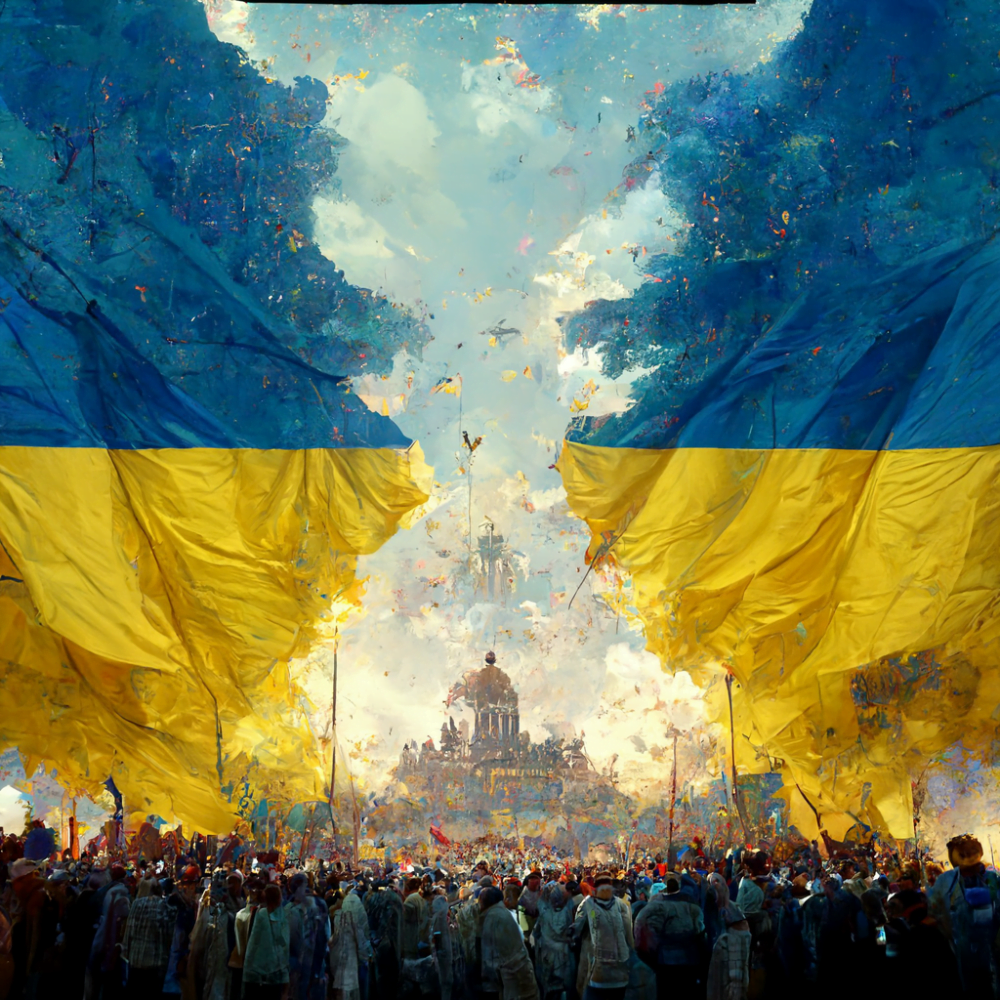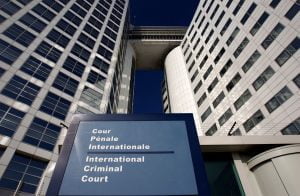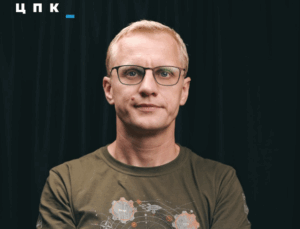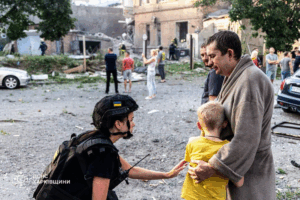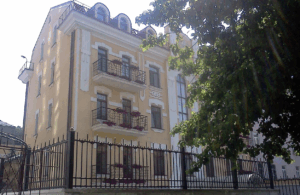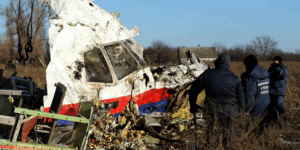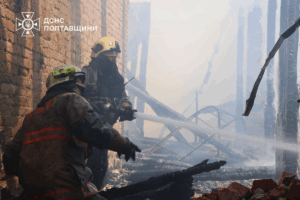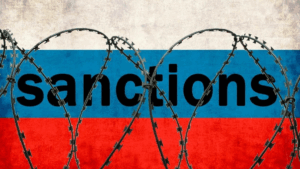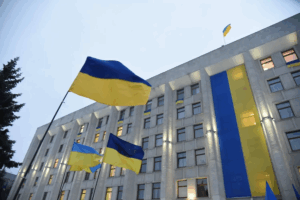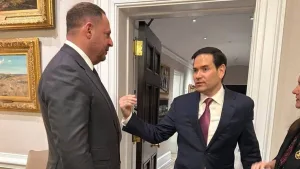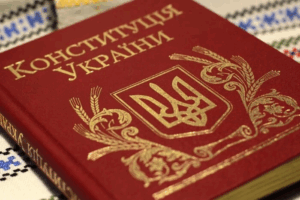“I am not inspired by posts of outrage.” The Ministry of Foreign Affairs was right to suspend the provision of consular services to draft dodgers abroad – interview with Volodymyr Ohryzko.
Foreign Minister Dmytro Kuleba confirmed the suspension of consular services for men of conscription age abroad. Subsequently, the Ministry of Foreign Affairs published an explanation.
Volodymyr Ohryzko, Head of the Center for Russian Studies and ex- Foreign Minister of Ukraine, considers this to be the right step. In an interview with Radio NV, he explained why.
— As a former Foreign Minister, how do you feel about the suspension, albeit temporary, of consular services for Ukrainian men abroad? What do you think about it? Is it legal and acceptable? To what extent is it permissible for the Minister of Foreign Affairs to conclude whether it is fair or unfair? Because there is some rule of the law, some obligations of Ukraine, conventions, etc.
— I think Minister Kuleba is acting within the framework of the law, because a new law has been passed that requires changes to certain procedures, and these procedures are changing. I think the Ministry of Foreign Affairs, more than anyone else, sticks to the rule of the law. I think in this case, the Foreign Ministry leadership is acting within the law.
— But the law has not come into force yet. It was signed by the president only on April 16, published in Holos Ukrainy on April 17, and will come into force in a month. The point is that the law has not entered into force, and consular services have already been suspended, which has created quite a stir.
— You know, Vlasta, the law will really come into force a month after its publication, but there are procedures that the Foreign Ministry follows. And these procedures, as well as the legislation in general, are subject to certain changes because the legislation itself changes.
In other words, consular officers need clear instructions on how to proceed. The old law practically expires in a few days, and it takes some time to process the applications that are submitted, and a legal conflict arises.
I think that the lawyers at the Foreign Ministry have carefully studied all the laws and regulations in order to act in this way.
But I have more of a moral question here. You, Vlasta, work for Radio Liberty, right?
– Yes, I do.
– You could probably get on a train and go to Prague and continue working for Radio Liberty there. But you’ve stayed in Kyiv, work here, pay taxes. With these taxes, the state is able to do what is necessary to protect our country, right?
And tens and thousands, maybe even hundreds of thousands men today feel great abroad, patriotically wave flags at football matches, but for some reason they don’t want to come and help Ukraine. Is it very moral? Is it very consistent with the modern realities we experience every day and every night? Can’t we ask the question in this way?
For example, I am outraged when healthy men who can work here stay abroad. They don’t have to go to the front, they can work anywhere. They can make drones, work in the military-industrial complex, or even cook for our defenders, so that they can have a hot meal at least once a day when they sit in wet trenches and defend us.
No, they chose a different logic. They stay away and talk very patriotically about how they love Ukraine. Therefore, I believe this approach is absolutely immoral.
— We have entered the moral and ethical plane, but there is also a legal plane. According to Eurostat, 650,000 men left Ukraine after it was impossible to do so. They left as volunteers, accompanying sick family members — there were many loopholes. They left with letters from the GUR. Perhaps it makes sense for the state to first find out who left and on what grounds and publish all these letters, if it is permissible? Because it turns out that initially the state created the conditions on the basis of which many men left illegally, and now the state is creating conditions to restrict consular services to men who left – both legally and illegally. Somehow it doesn’t fit properly. What do you think?
— I think we’ll wait a few weeks and everything will fit very well, when all the legal issues are settled finally and irreversibly. I think it’s really about two or three weeks, no more.
As for those who left under the guise of volunteers, realizing that they would never return, it’s immoral, I think. Taking advantage of the fact that the state helped supposedly those who wanted to help the state, and then deceived it, is doubly immoral.
We don’t live only within the limits of some regulation of laws, by-laws; we live within our emotional, moral, ethical limits. And these things are no less important than what is regulated by law. Ethics has not disappeared, patriotism has not disappeared.
I am all the more offended and, to be honest, thrown off balance by the statements of some of our pseudo-cultural figures who say: “We are a democratic state, so I will decide whether I will go to war or not.” Well, I’m such a big “democrat”, and I’ll simply, pardon my language, spit from a big bell tower on the state’s interests. Is this what should be heard today from the figures who associate themselves with culture, with something high? I don’t think so.
So let’s really look for a balance here. Yes, not everything can be built on emotions and some things that cannot be touched with hands. But, when the state tries to bring order to what it really needs, I think it must be helped in this.
– Don’t you see any risks here? This won’t force hundreds of thousands of men abroad to return, will it? They will look for a chance to legalize their stay somewhere else in the world, seek asylum or apply for citizenship. Don’t you think that these actions will lead to some reverse consequences and Ukraine will just lose its citizens?
– These, in my opinion, rather weak measures, which Minister Kuleba has announced, will in no way affect the things you are talking about. Because if a man wants to find a reason to stay, he will find them 1,500 times, regardless of whether the consulate gives him some paper or not. And if he wants to help his country, he will also find 1,500 reasons to return and do it here.
So the question is not about these temporary discrepancies, but about the civic position, either you have it or you don’t. Let’s proceed from this.
— As a former minister, how do you assess the communication of this topic with society? Late in the evening, two days ago, Dzerkalo Tyzhnia published a letter signed by Sybiha, Kuleba’s deputy, which journalists received from sources in the Foreign Ministry. Society began to be outraged; some people wrote posts on social media, queues began to form at consulates. And only the next morning, Kuleba came out and said: “Yes, it is true. I think it’s fair.” The president keeps silent, although he is supposedly directly involved in international politics. How do you assess this communication?
— This is a question that can be assessed both ways. Of course, you can report something in advance, or you can do it the way it was done. Another question is how effective it is.
But I’ll say it again: I’m not inspired by posts [on social media] where people are outraged. They are outraged because they do not help Ukraine. This is, of course, a wonderful outrage, but it is false, in my opinion.
Tags: Dmytro Kuleba MFA mobilization russia ukraine war Ukraine
